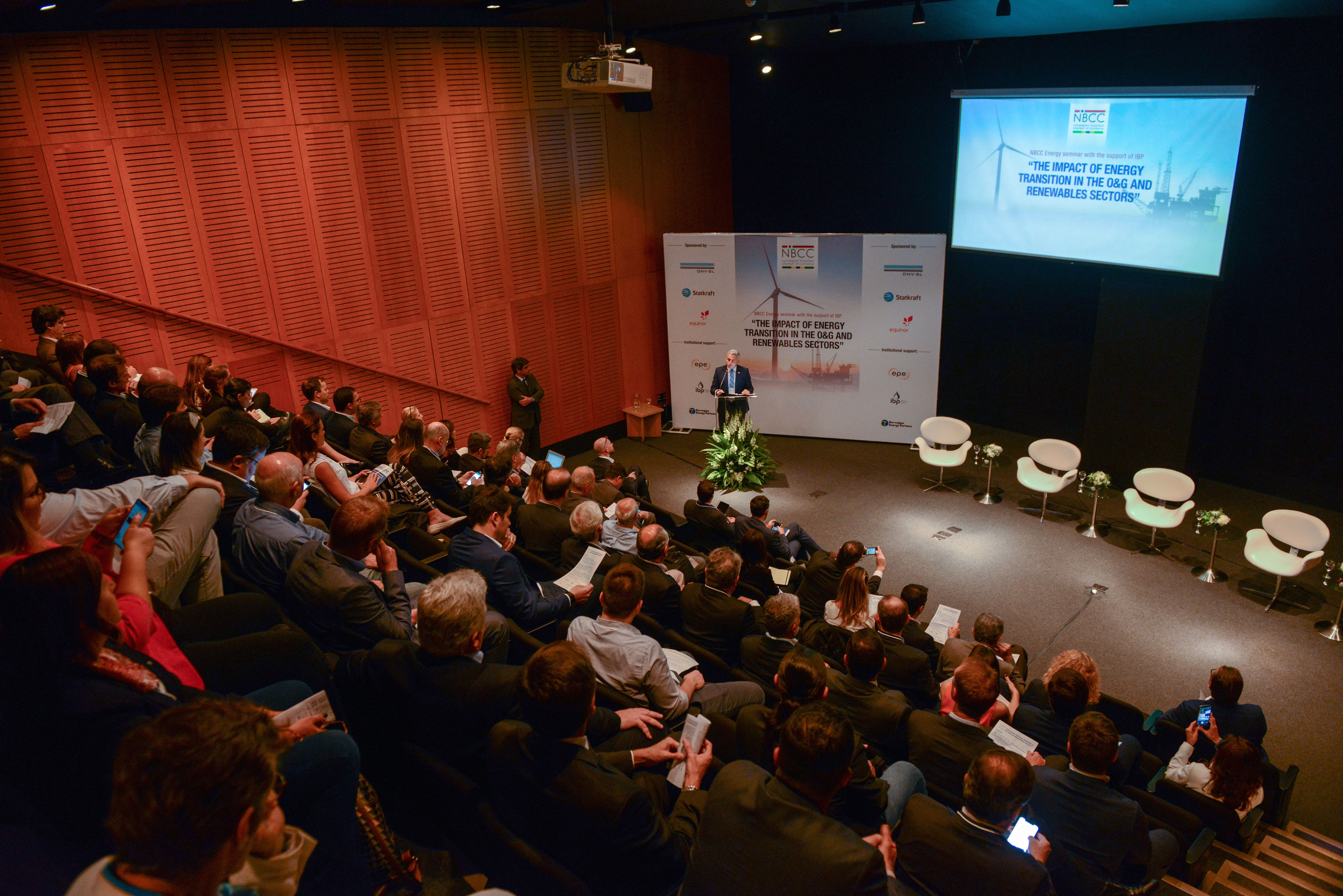
Photo courtesy of Carlos Fernandez
Action is required as decarbonization is becoming an imperative, even in the international oil and gas industry. Game-changing technology and cross-industry collaboration could be the way to strike the right balance, navigating the transition.
On October 8, 2019, NBCC´s Energy seminar, addressing the impact of energy transition on the oil and gas and renewables sectors, took place in the Museum of Art of Rio de Janeiro (MAR).
See photos from the event by clicking here!
The need to limit climate change requires radical action around the world, and the move from a fossil-based to a low carbon economy raises challenges for today´s oil and gas industry. Data from CDP, a global provider of climate research, shows that 100 energy producing companies could be linked to 70 percent of the global greenhouse gas emissions through their operations and products. According to NBCC president Alex Imperial, oil and gas executives need to position themselves for the future.
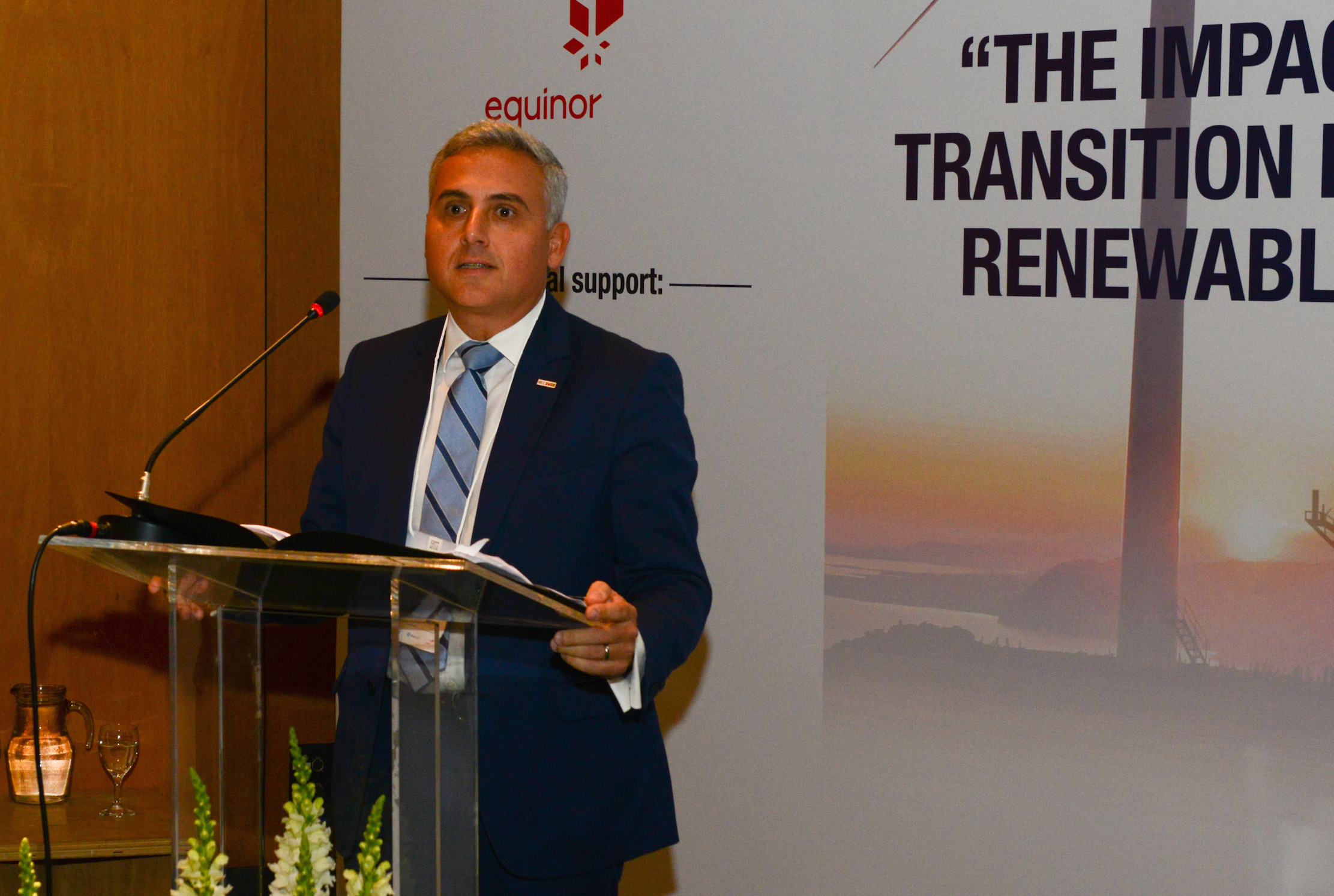
«Energy transition is an exciting yet complex theme which encompasses geopolitics, climate change, technology, innovation, economic development and, not least important, social inclusion», says NBCC president Alex Imperial. Photo courtesy of Carlos Fernandez.
«The world’s energy system will undergo enormous changes in the next three decades, as the world shifts towards a low-carbon economy. We have to recognize the sense of urgency, but it is equally important that country and region-specific contexts are understood and considered», he said in the opening remarks to the October event.
A matter of energy
The seminar gathered key leaders from the oil and gas and renewables sectors, representatives of governmental bodies and academia, to share insights, trends and challenges.

Monique de Carvalho Gonçalves and Clarissa Lins. Photo by RH.
«Climate change is a matter of energy, and the current mix of energy is completely reliant on fossil fuels. But this has come with a cost – US$ 165 billion due to extreme climate events only in 2017 and 2018. We are faced with an unprecedented challenge where we need to cut emissions while the energy demand keeps growing. But the energy future will still rely on oil and gas, at least with a share of 50 percent of the total mix. This poses challenges, but also opportunities and the oil and gas industry needs to take action to reinforce its legitimacy going forward», said Clarissa Lins, founding partner of Catavento, a consultancy on strategy and sustainability.
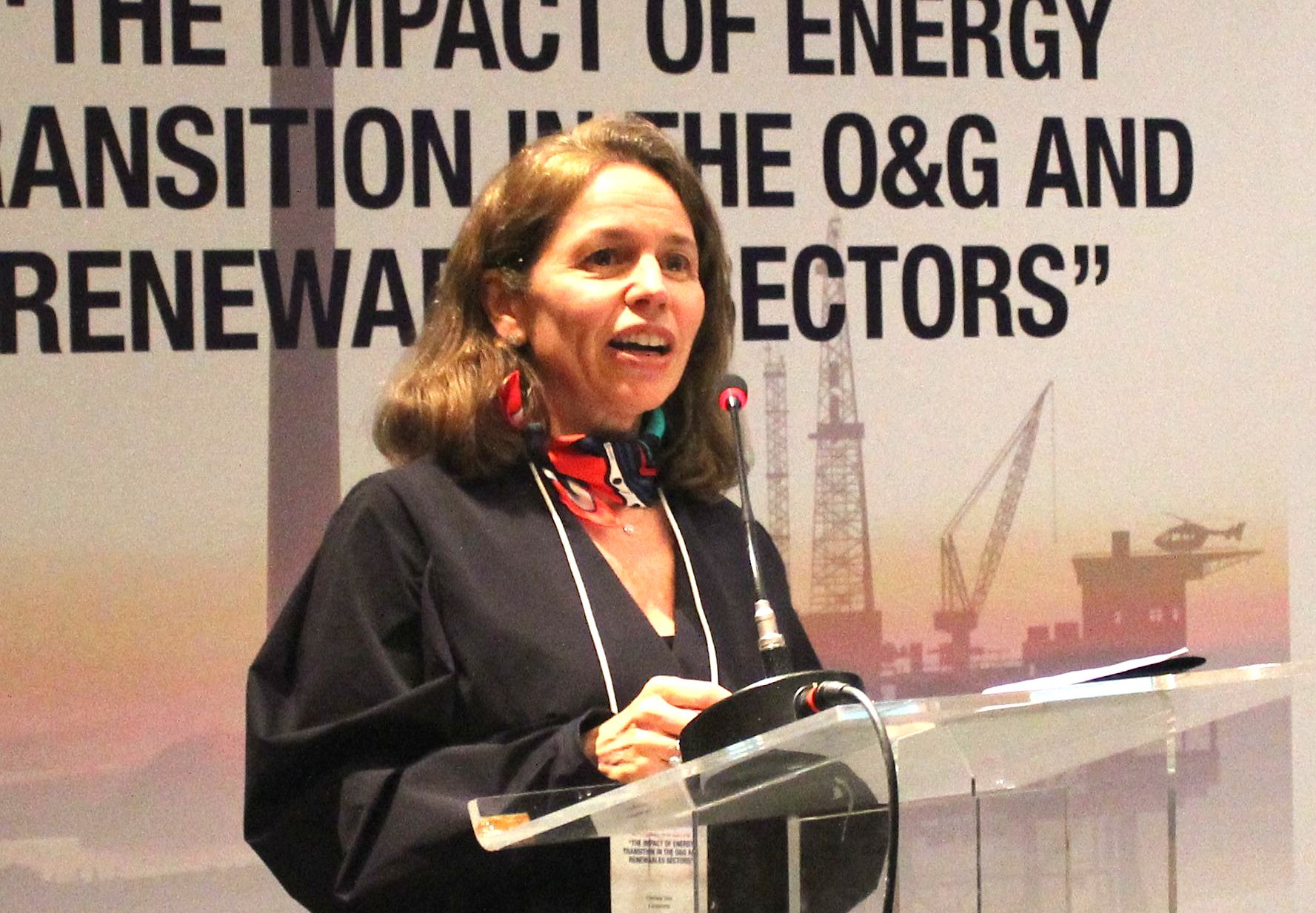
Photo by RH.
The event was divided in panels, and Ms. Lins (in the photo to the left) moderated the oil and gas panel where oil majors Equinor and Shell were represented.
«Climate change is one of the hardest challenges that our sector has ever faced, and this has changed our mindset», said Monique de Carvalho Gonçalves, Shell´s Strategy and Planning Manager.
«Climate change is real, and we in Equinor believe that in a few years time, Co2 will affect the value of our product, through taxes, regulations and competition from other energy sources. The consumer-based reactions towards fossil fuels that we see today, are also only the tip of the iceberg. Low carbon is about value, and we believe that a low emissions strategy will become a competitive advantage some day soon», said Øistein Johannessen, VP of Communications of Equinor Brazil.
Possible, affordable and fast
There is no doubt that the global energy industry is facing a paradigm shift, but despite a rather weighty backdrop, the distinguished keynote speakers at the seminar brought optimistic messages to the audience:
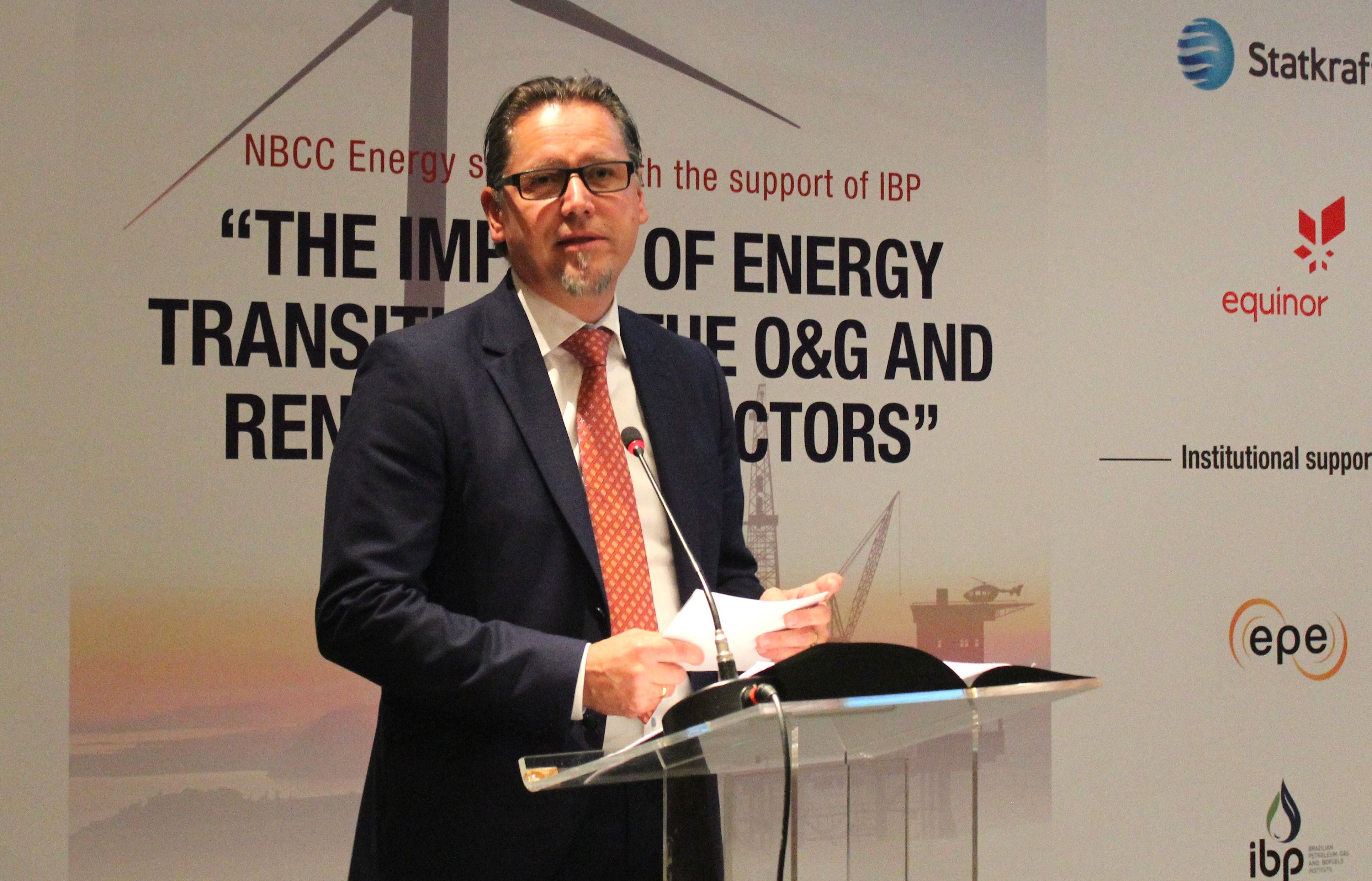
The energy transition will be fast, although not fast enough for the Paris Agreement, says keynote speaker Remi Eriksen, DNV GL CEO. Photo by RH.
«Existing technology can deliver on the Paris Agreement, but only if supported and backed by strong policies. The energy transition will be affordable and towards the end of 2050, the world will be using a smaller percentage of the world GDP on energy», said Mr. Remi Eriksen, CEO of DNV GL.
«The speed of the transition will of course depend on policies and the rate of the deployment of technology, and this will also play out differently in different regions. The transition is a source of risk, but cleaner and more efficient energy systems also create opportunities», Mr. Eriksen stated.
Efficiency gains
He also presented key takeaways from the DNV GL report «Energy Transition Outlook 2019», and according to this report, the global energy demand will peak in the mid-2030-s, while oil demand will peak in the mid-2020-s. By 2050, DNV GL expects a more prosperous world emitting less CO2, with 44 percent of the energy sources being non-fossil. Huge efficiency gains may come from electrification, with the greatest gains in transport. Two thirds of the world´s electricity will be generated from solar and wind power sources, requiring a more flexible system than we have to day. Tremendous gain is also expected from cost reduction of renewable energy.
The energy need in Latin America is however expected to continue to grow, due to urbanization and population growth. Hydropower will remain the largest source of electricity in the region, but solar and wind will increase as energy sources. Oil will remain the region´s largest energy source.
Growing E&P investments
The second keynote speaker was Thiago Barral, Executive President of EPE, an energy research entity of the Brazilian Ministry of Mines and Energy. He set the Brazilian energy scene to the seminar.
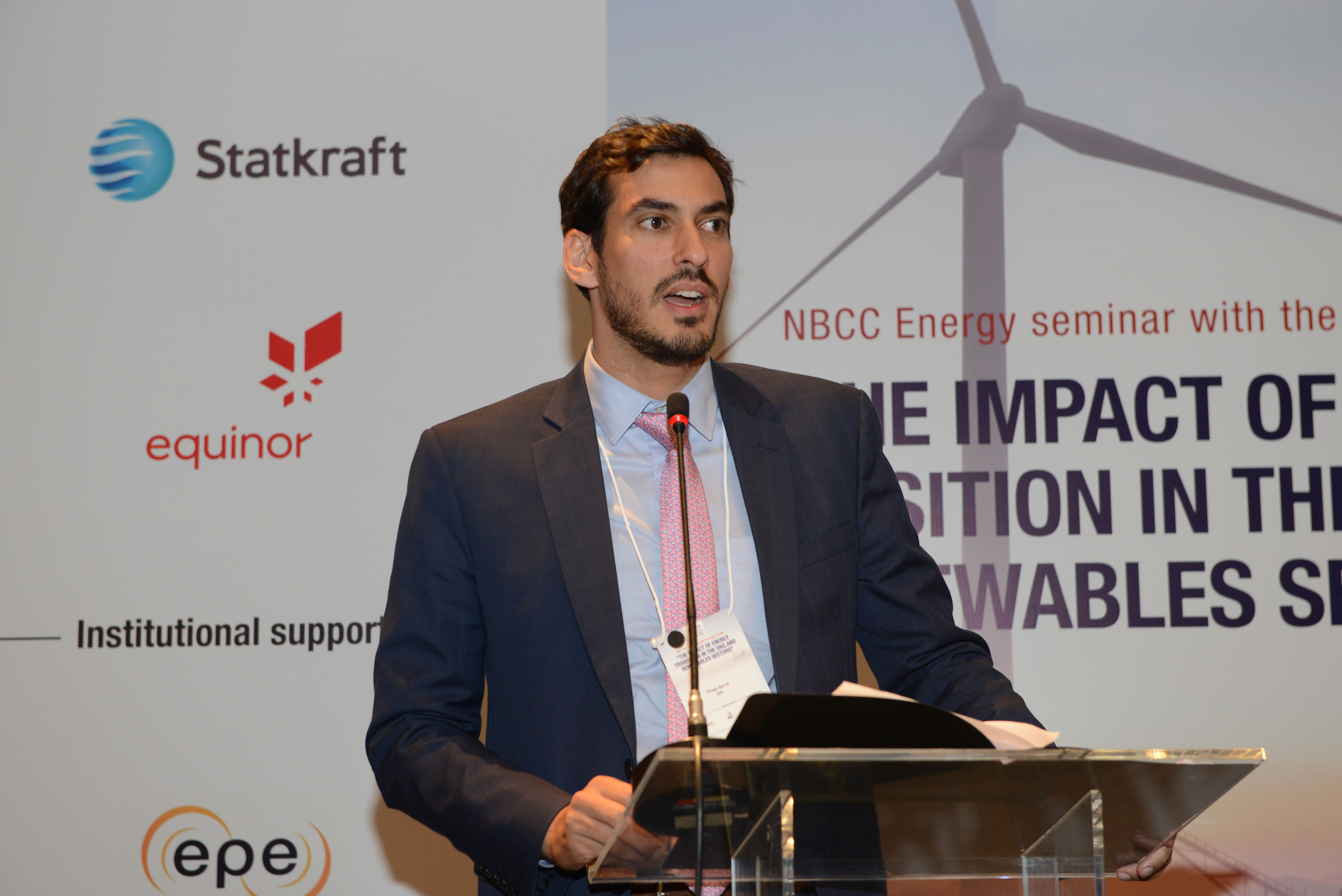
Thiago Barral argued that the inevitable energy transition needs to be higher on the political agenda in Brazil. Photo courtesy of Carlos Fernandez.
«We are in the beginning of the transition, and both technological advance and policies to address climate change have the potential to accelerate the transition», he said.
He listed four main trends in the Brazilian energy sector: Growing E&P investments, due to the pre-salt reserves, increased private participation in the energy infrastructure sector, more diverse financing solutions and cheaper renewables driving the need for improved transmission and storage.
«Brazil has scale both as an economy and as a market, and is recognized for its green energy matrix and leading when in comes to renewable energy. Brazil is rich in energy resources. But non-renewables will still play a relevant role in Brazil and the energy consumption will grow 25 percent in ten years. Going forward we need to explore different scenarios to navigate the uncertainties we are facing, but Brazil is well positioned to play a leading role in the transition, if focus is on research, innovation, on dissemination of new technologies and on a competitive market», Mr. Barral said.
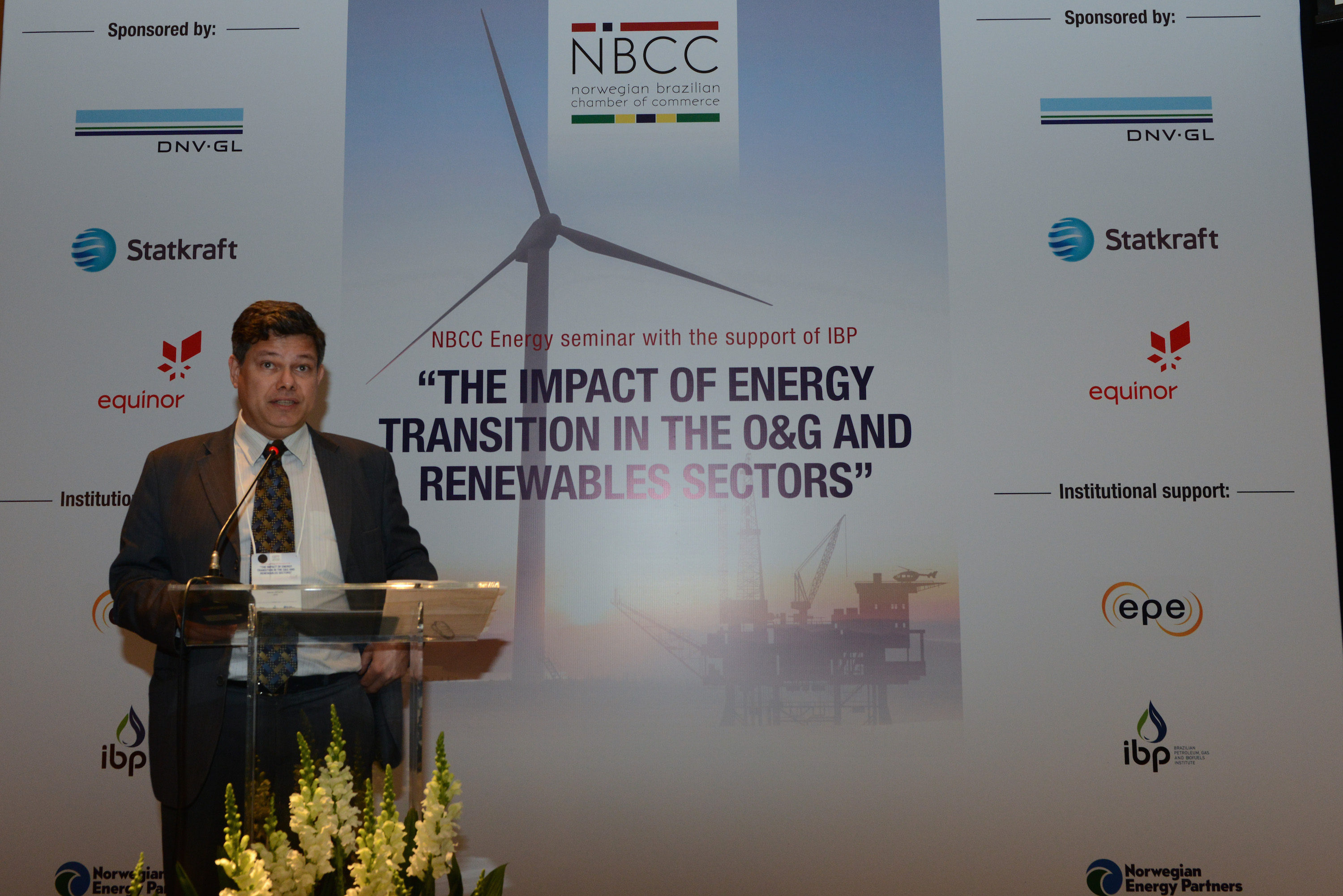
Panel moderator Edmar Almeida. Photo courtesy of Carlos Fernandez.
Cleaner and cheaper
After the keynotes, the event was organized in two different panels, and Professor Edmar Almeida (UFRJ) moderated the first Renewable Energy Panel.
Panelist Fernando de Lapuerta, CEO of Statkraft in Brazil, shared the company´s outlook and focused on the cost development of renewable energy projects, with a lower cost making them unbeatable compared to other energy sources.
The intermittency of renewable energy sources is however a concern, and Mr. de Lapuerta talked about actions to mitigate intermittency, like batteries and use of integrated energy sources.
The panel addressed the need for investments in infrastructure, like power grids and storage, to avoid limiting the expected growth of renewables.

Renewable Energy Panel: From the left: Tchiarles Courtinho, Edmar Almeida, Fernando de Lapuerta, Robert Klein and Antônio Quirino. Photo courtesy of Carlos Fernandez.
Tchiarles Courtinho, DNV GL Energy Country Manager Brazil, talked about the power grid of the future and the main technical challenges in order to secure high renewable penetration.
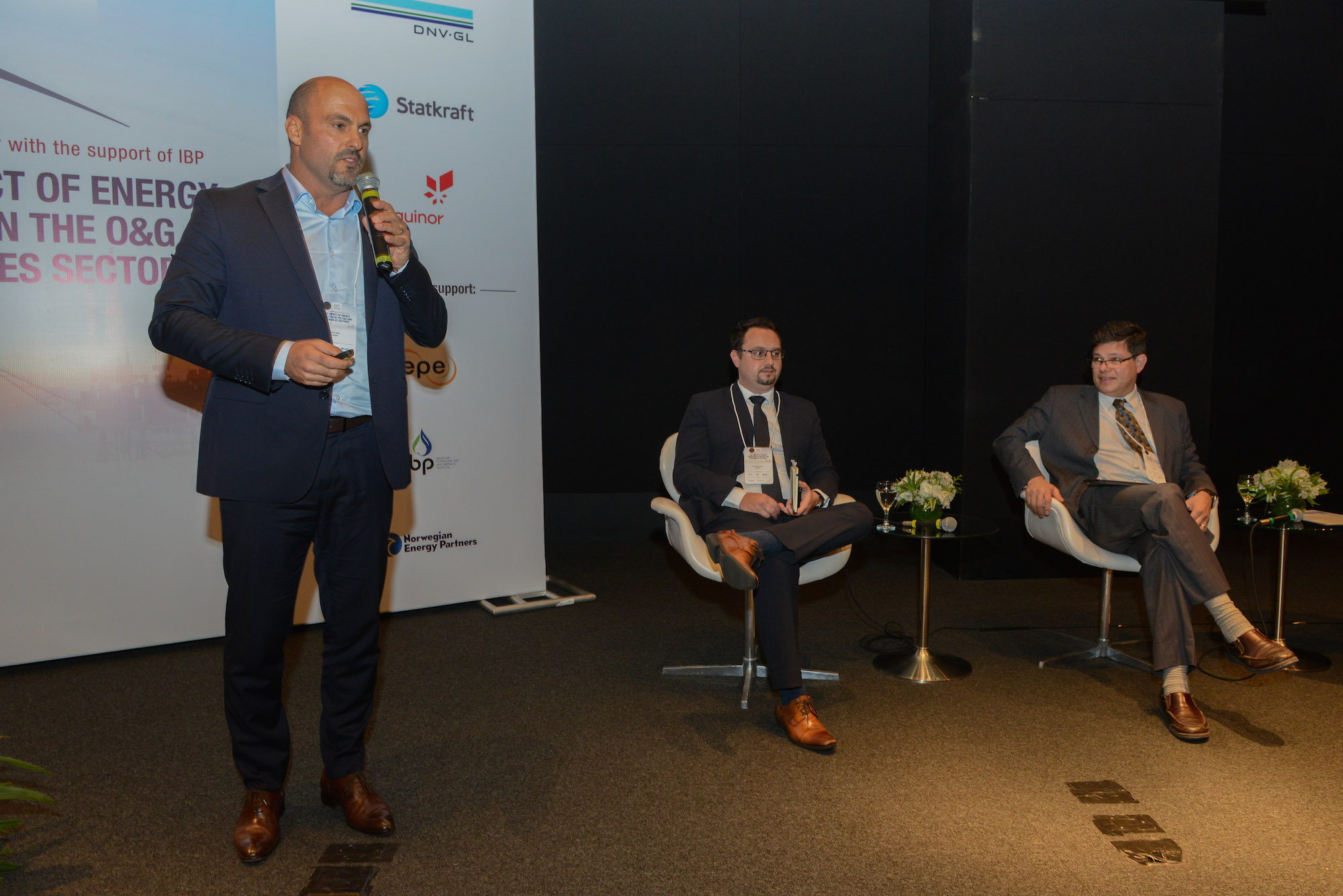
Mr. Robert Klein. Photo courtesy of Carlos Fernandez.
«We are in the beginning of the transition process, and need a stronger effort from all stakeholders in Brazil to be prepared for the transition. The decisions we make today, will shape the process.»
Robert Klein from Voltalia talked about the role of private PPAs in the energy transition and how it is a trend worldwide. He called Brazil a perfect match and a good country to invest in renewable energy. He also talked about the added value of the transition as going green is good for branding.
Antônio Quirino, Business Development Manager in Scatec Solar, sees Brazil as a top solar market considering its opportunities short to medium term. He also discussed the importance of strategic positioning to take advantage of expected regulatory changes, such as the implementation of PLD hourly pricing and opening of the free market.

Oil and Gas Panel: From the left: Monique de Carvalho Gonçalves, Clarissa Lins, Remi Eriksen, Øistein Johannessen and Edson Real. Photo by RH.
The second panel was dedicated to oil and gas, and Clarissa Lins from Catavento was the panel moderator.
DNV GL CEO Remi Eriksen and Edson Real, the LNG Business Development Director of Golar Power, accompanied Ms. Gonçalves from Shell and Mr. Johannessen from Equinor on the oil and gas panel.
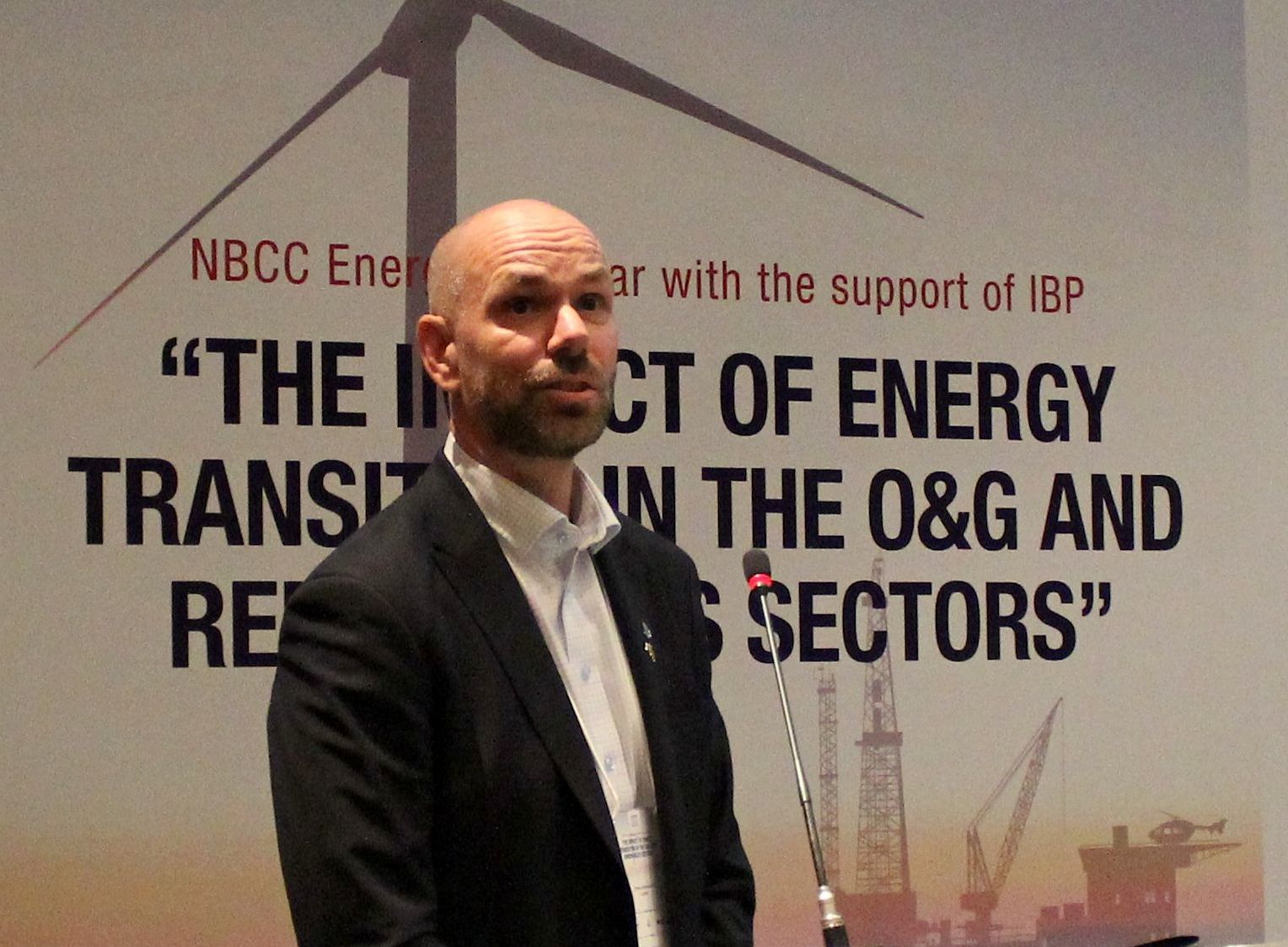
«Investing in forest protection is actually cheaper than the current available CCS technology», says Øistein Johannessen of Equinor. Photo by RH.
«We have two options – use less energy or produce cleaner energy – or something in between. There is still a need for oil and we should not stop exploring. We need to find our way, and the Equinor strategy is to reduce our own emissions per barrel produced, to invest in renewables and to offset emissions», says Mr. Johannessen.
«The demand in oil will decline, but the decline in production from existing fields will still be larger so the industry needs to find new reserves», Mr. Eriksen said, backing the Equinor executive. He believes the industry needs to look at CCS and safety, to guarantee reputation and the license to operate going forward.
In his presentation, Edson Real, of Golar Power, focused on the role of LNG in the transition, which he believes to be very important.
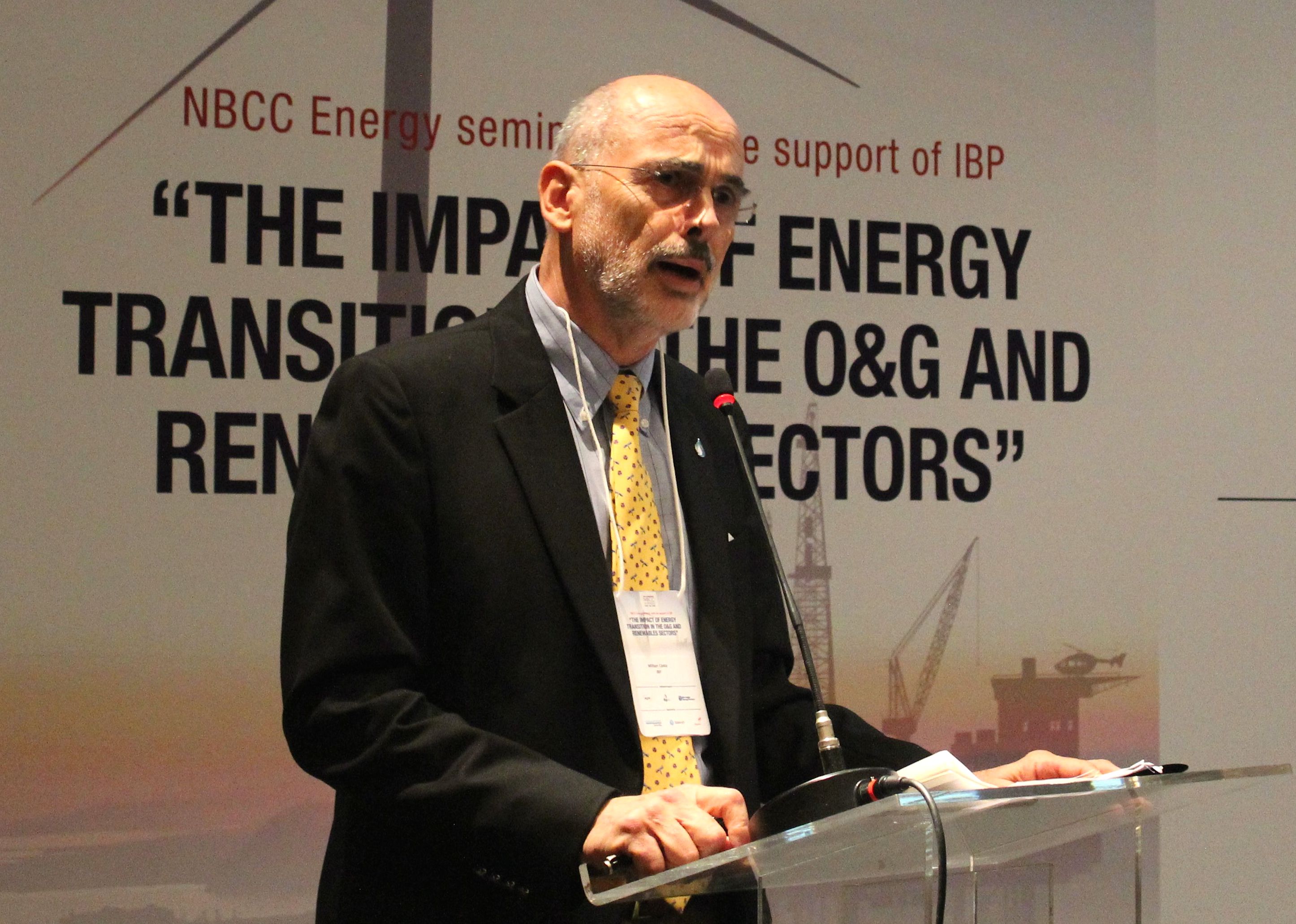
Photo by RH.
In good shape
Milton Costa Filho, Secretary General of IBP, was given the complicated task of summing up the seminar.
«Brazil is in good shape, with a very green energy matrix, and we can thank huge investments made in hydropower and biomass back in the 1960-s and 1970-s for that. As I see it, we need to keep in mind that we are going to have a big problem if we under-invest in fossil energy. What is the real meaning of energy transition for Brazil? The transition is a journey and each country will have to take its own journey, with the challenges and opportunities that come with it», Mr. Milton Costa Filho concluded.
The seminar was sponsored by DNV GL, Statkraft and Equinor, and also had the institutional support of EPE, IBP and Norwegian Energy Partners.
By Runa Hestmann, NBCC journalist
(runa.tierno@nbcc.com.br)
:

